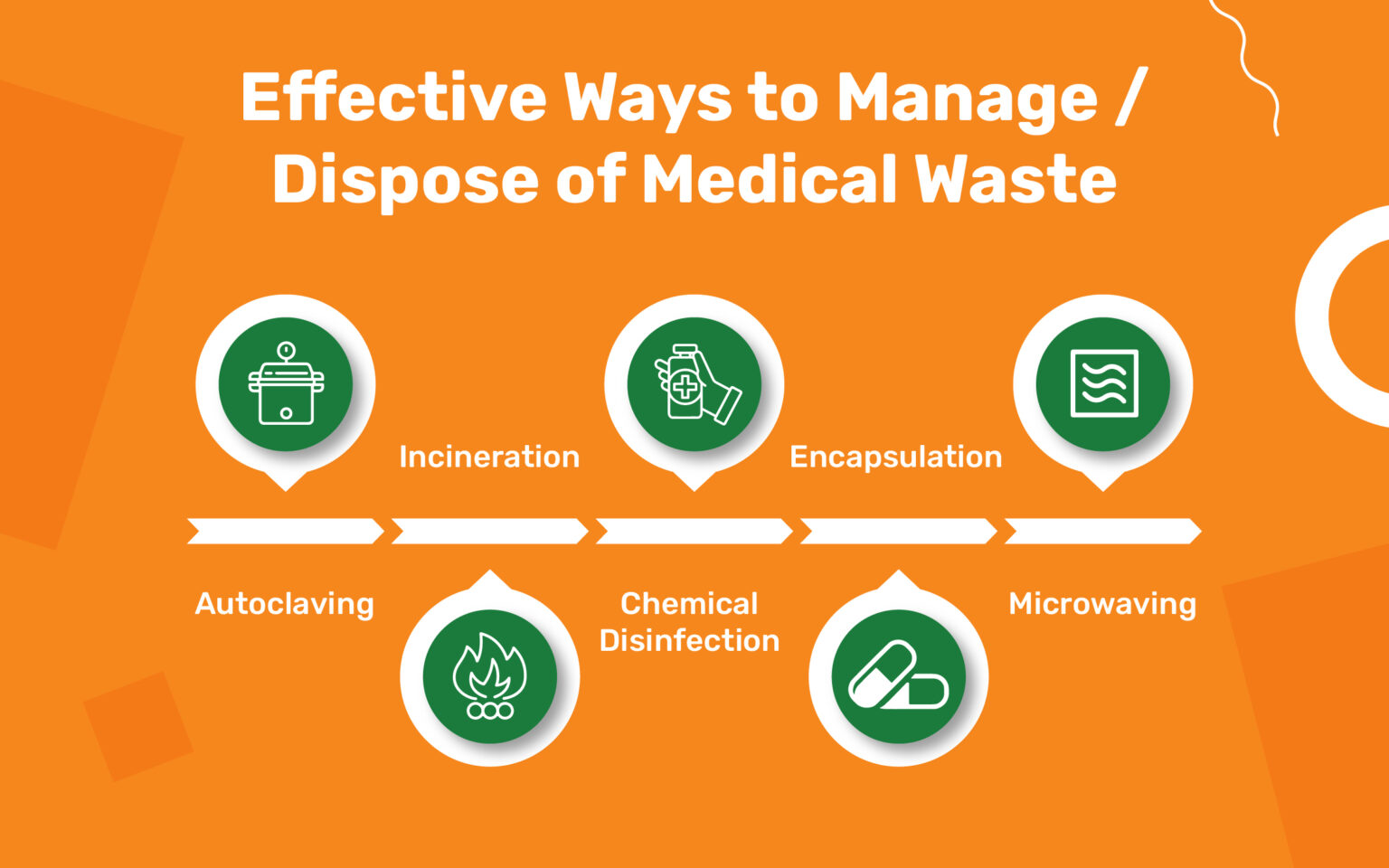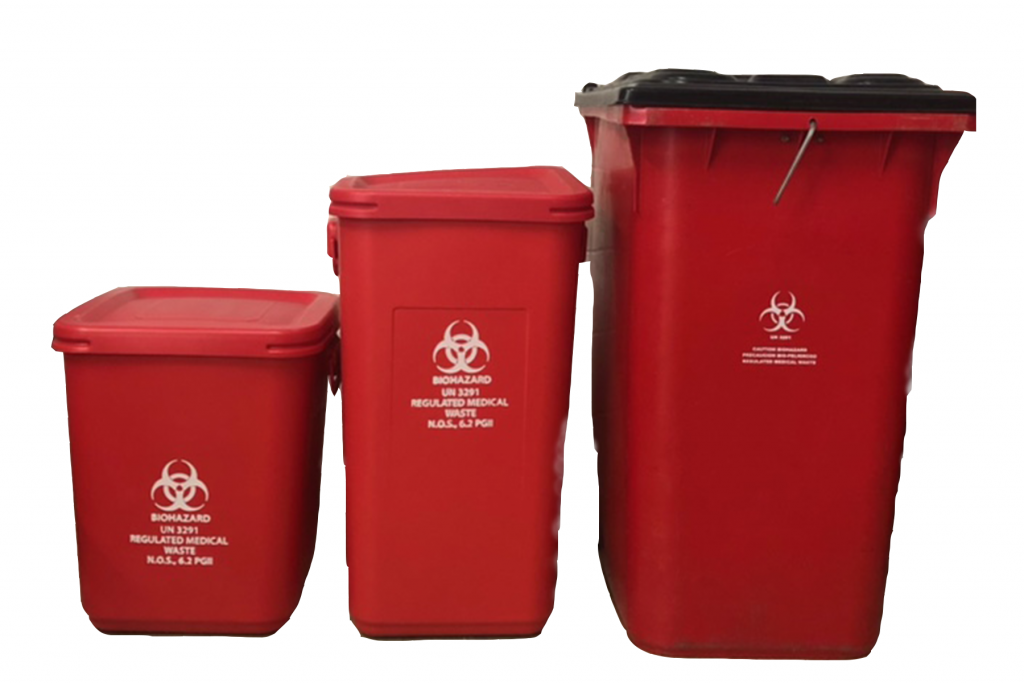Defending Well-Being: Revealing the Significance of Specialist Medical Waste Removal
Efficient and Eco-friendly Medical Waste Disposal Solutions
In the ever-evolving area of medical care, the concern of clinical waste disposal stays a subject of vital importance. As hospitals, facilities, and other medical care facilities aim to supply top quality client treatment, they should also deal with the obstacle of efficiently and responsibly disposing of their waste.
Waste Partition Practices
Reliable waste segregation methods are necessary to guarantee the risk-free and correct disposal of medical waste. Medical waste, which consists of products infected with potentially transmittable materials, must be managed in a method that decreases the threat of injury to both public wellness and the environment. Proper waste partition plays an important function in accomplishing this goal.
Waste segregation includes the splitting up of various kinds of waste based upon their characteristics and potential dangers. This procedure ensures that each kind of waste is dealt with and gotten rid of properly (medical waste disposal services with WasteX). It starts at the point of generation, where medical care facilities need to have assigned bins and containers for various waste classifications, such as sharps, infectious waste, pharmaceutical waste, and non-hazardous waste
By setting apart medical waste at the resource, medical care service providers can prevent cross-contamination and reduce the danger of exposure to contagious representatives. This method also promotes the recycling and recovery of specific materials. As an example, segregating and recycling tidy plastics and glass reduces the need for raw products and reduces the environmental effect of clinical waste disposal.

Autoclaving and Sanitation Strategies
In order to make certain the correct and safe disposal of medical waste following efficient waste segregation techniques, medical care centers must employ autoclaving and sterilization techniques. Autoclaving is a widely utilized technique that uses high-pressure heavy steam to disinfect clinical waste. This procedure includes placing the waste in a chamber and subjecting it to a mix of high temperature level and pressure, which efficiently kills microorganisms and renders the waste secure for disposal. Autoclaving is particularly effective in sterilizing things such as surgical instruments, laboratory devices, and certain kinds of medical waste that can hold up against high temperatures. medical waste disposal services with WasteX.
This involves dealing with the waste with chemicals such as ethylene oxide or hydrogen peroxide, which eliminate microbes by interrupting their mobile framework. It is important to keep in mind that chemical sterilization needs appropriate handling and disposal of the chemicals utilized, as they can be unsafe to human health and wellness and the setting if not taken care of correctly.
On-Site Waste Treatment Systems
Medical care facilities have actually executed on-site waste therapy systems to deal with the disposal of clinical waste in a reliable and risk-free way. These systems offer a affordable and convenient option for taking care of medical waste produced within the facility. On-site waste therapy systems utilize various modern technologies to deal with and dispose of medical waste on-site, reducing the requirement for transport to off-site facilities.
One typically made use of on-site waste therapy system is the microwave innovation. Another system is the chemical disinfection technology, which entails click reference treating medical waste with chemicals to eliminate virus and lower its harmful nature. medical waste disposal services with WasteX.
On-site waste therapy systems provide a number of advantages. Firstly, they get rid of the threat of medical waste being mishandled throughout transportation, lowering the potential for contamination and exposure to harmful compounds. Additionally, these systems assist health care centers adhere to waste monitoring regulations by offering a efficient and hassle-free disposal approach. Furthermore, on-site therapy systems decrease the general ecological influence of medical waste by decreasing transportation and the demand for land fill area.
Recycling and Repurposing Campaigns
As medical care centers strive for lasting waste administration practices, they are progressively discovering recycling and repurposing campaigns as a way of reducing the ecological effect of medical waste. Reusing and repurposing initiatives include locating ingenious methods to reuse or transform clinical waste right into new items or products. This not just helps to lessen the quantity of waste that finishes up in landfills or burners but additionally decreases the usage of basic materials and power needed for making brand-new items.
One instance of reusing in the medical care market is the reprocessing of single-use medical devices. These devices, such as surgical tools or catheters, are commonly thrown out after a single use. Improvements in technology and stringent sterilization processes have made it possible to safely tidy, decontaminate, and reuse these tools numerous times. This not just decreases the quantity of waste created but also conserves healthcare facilities considerable prices related to acquiring brand-new tools.
An additional recycling campaign entails the recycling of plastic containers, such as medicine containers or syringe casings. These containers can be gathered, sorted, and sent to recycling centers where they are refined, melted down, and transformed into new plastic items. This assists to preserve resources and reduce the need for virgin plastic production.
Along with reusing, repurposing efforts involve locating alternative uses for clinical waste. home Shredded paper waste from medical records or packaging materials can be repurposed as bedding product for pets or as insulation material. Likewise, natural waste such as food scraps from health care facilities can be composted and utilized as plant food in yards or farming fields.

Renewable Resource Solutions
One efficient approach to mitigating the ecological impact of healthcare procedures includes executing renewable resource services. Healthcare facilities, such as medical facilities and facilities, eat considerable quantities of energy for various functions, including lighting, heating, cooling, and operating medical devices. By transitioning to renewable resource sources, these centers can substantially reduce their carbon impact and contribute to a much more sustainable future.

Implementing renewable resource solutions in More Help medical care facilities not just minimizes greenhouse gas exhausts however also supplies lasting cost financial savings. While the first financial investment in renewable energy framework may be greater, the long-term functional costs of sustainable energy systems are dramatically reduced contrasted to traditional fossil fuel-based energy sources. Furthermore, eco-friendly energy systems are trusted and can supply a secure and uninterrupted power supply, making certain continual medical care solutions also throughout power interruptions or emergency situations.
Conclusion
Finally, applying reliable and eco pleasant clinical waste disposal services is important for maintaining a lasting healthcare system. By taking on waste segregation practices, autoclaving and sanitation strategies, on-site waste treatment systems, reusing and repurposing initiatives, and renewable power options, medical care centers can considerably lower their ecological influence. These steps not only protect the atmosphere yet likewise promote public health and safety. It is vital for medical care organizations to focus on the application of these sustainable waste disposal methods.
It begins at the factor of generation, where health care centers should have assigned containers and containers for different waste classifications, such as sharps, transmittable waste, pharmaceutical waste, and non-hazardous waste.
In order to make sure the correct and safe disposal of clinical waste adhering to effective waste partition techniques, health care facilities should utilize autoclaving and sanitation methods.Medical care facilities have carried out on-site waste therapy systems to address the disposal of medical waste in a effective and risk-free fashion. On-site waste therapy systems make use of various innovations to deal with and get rid of of clinical waste on-site, minimizing the need for transportation to off-site facilities.
As healthcare facilities aim for lasting waste monitoring techniques, they are significantly discovering recycling and repurposing initiatives as a means of reducing the environmental effect of clinical waste. - medical waste removal near me